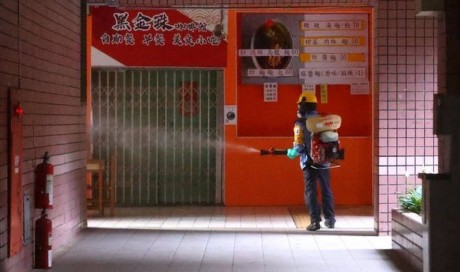A sperm whale found dead in a national park in Indonesia had nearly 6kg of plastic waste, including 115 cups, in its stomach, park officials said on Tuesday (Nov 20).
The 9.5m whale was found in waters near Kapota Island, part of the Wakatobi National Park, south east of Sulawesi, the park said in a statement.
The park is famous among divers for its large area of reefs and diverse marine life including rays and whales.

A stranded whale with plastic in his belly is seen in Wakatobi, Southeast Sulawesi, Indonesia, Nov 19, 2018 in this picture obtained from social media. (Photo: Reuters/Kartika Sumolang)
The cause of death was not known, but park officials found plastic bottles, bags, sandals, and a sack with more than 1,000 pieces of string in the whale's stomach.
In June, the death of a pilot whale in Thailand with 80 pieces of plastic rubbish in its stomach garnered headlines locally, but drew more attention outside the country.
Five Asian nations - China, Indonesia, the Philippines, Vietnam and Thailand - account for up to 60 per cent of plastic waste leaking into oceans, said a 2015 report by the environmental campaigner Ocean Conservancy and the McKinsey Center for Business and Environment.

A man collects plastic items from a whale's belly, in Wakatobi, in this picture obtained from social media. (Photo: Reuters/Kartika Sumolang)
Indonesia, ranked second behind China in the 2015 study of mismanaged plastic waste from populations living near coastal areas in 192 countries, has pledged US$1 billion a year to reduce marine plastic debris by 70 per cent by 2025.
Wakatobi park planned to bury the whale carcass at high tide on Tuesday, and the remains would be used for study purposes by the local marine academy.

A man collects plastic items from a whale's belly in this picture obtained from social media. (Photo: Reuters/Kartika Sumolang)
Share This Post












